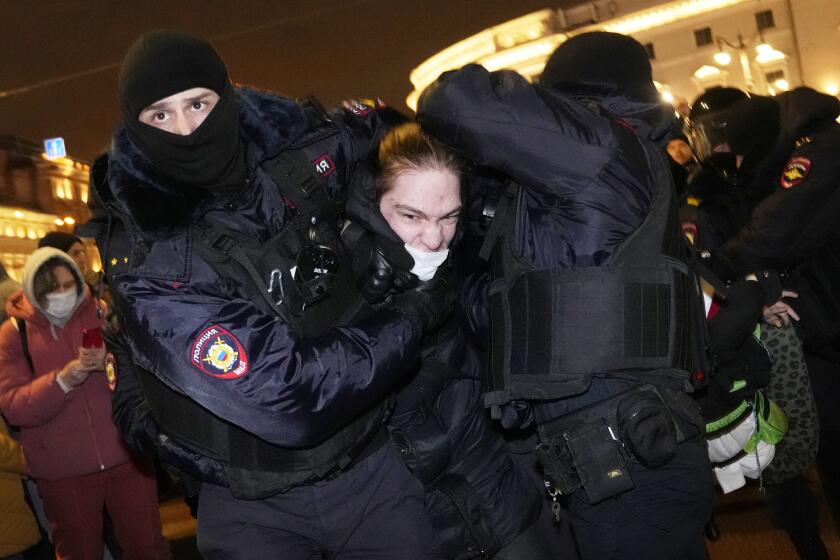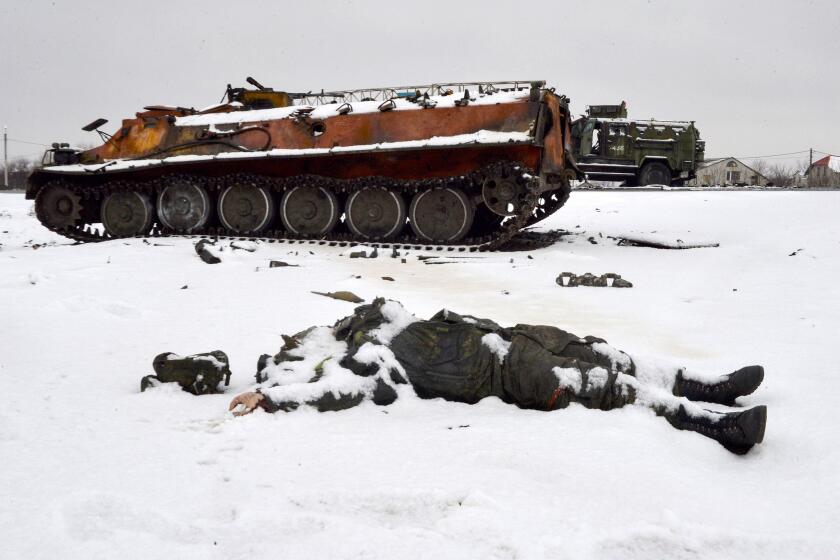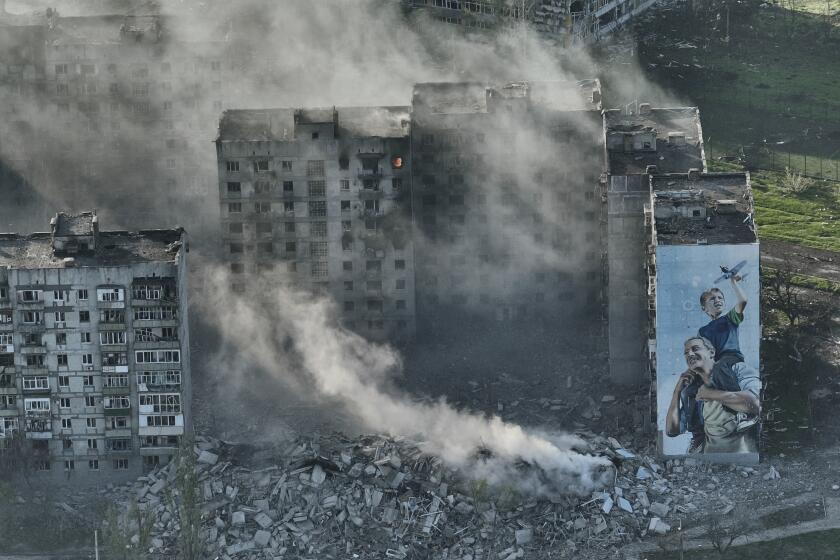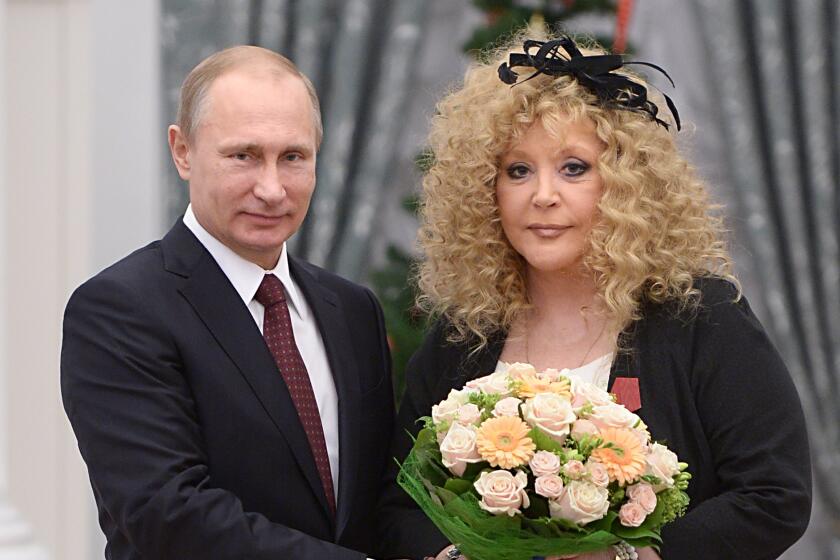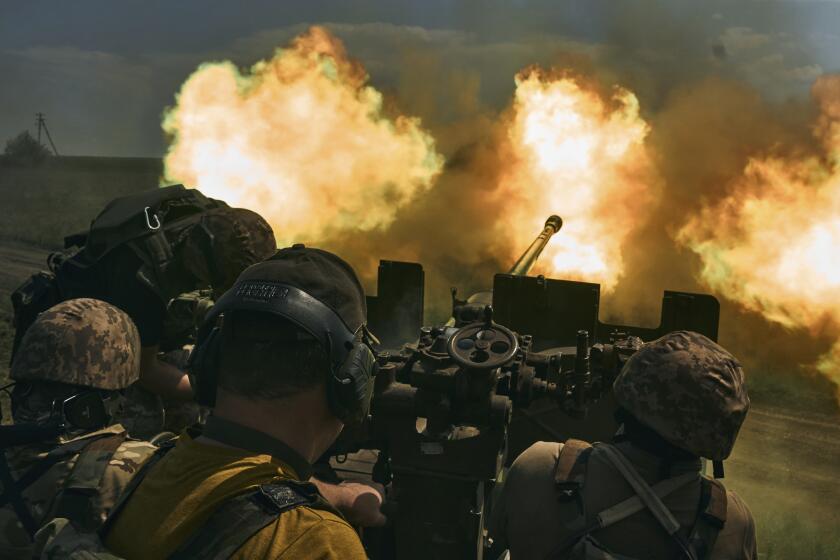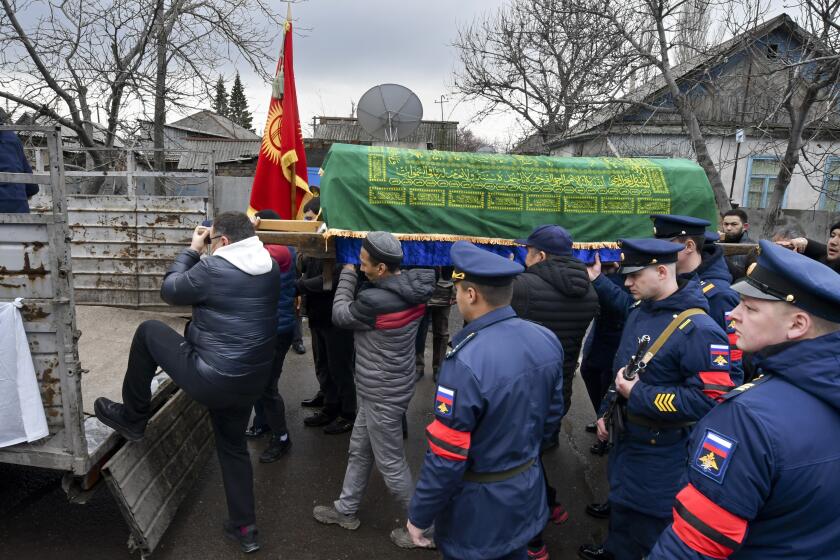‘Total digital surveillance’: How Russia tracks, censors and controls its citizens
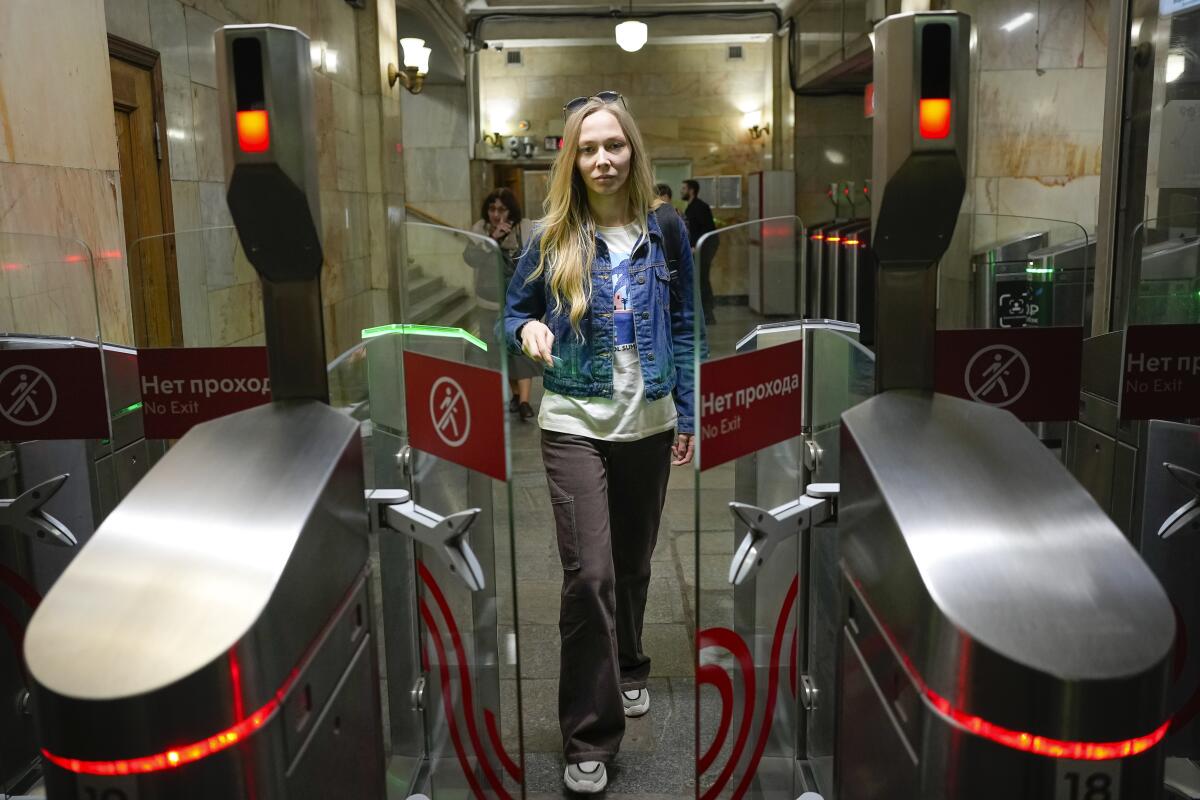
- Share via
TALLINN, Estonia — When Yekaterina Maksimova can’t afford to be late, the journalist and activist avoids taking the Moscow subway, even though it’s probably the most efficient route.
That’s because she’s been detained five times in the last year, thanks to the system’s pervasive security cameras with facial recognition. She says police would tell her the cameras “reacted” to her — although they often seemed not to understand why, and would let her go after a few hours.
“It seems like I’m in some kind of a database,” says Maksimova, who was previously arrested twice: in 2019 after taking part in a demonstration in Moscow and in 2020 over her environmental activism.
For many Russians like her, it has become increasingly hard to evade the scrutiny of the authorities, with the government actively monitoring social media accounts and using surveillance cameras on activists.
Even an online platform once praised by users for easily navigating bureaucratic tasks is being used as a tool of control: Authorities plan to use it to serve military summonses, thus thwarting a popular tactic by draft evaders of avoiding being handed the military recruitment paperwork in person.
Rights advocates say that Russia under President Vladimir Putin has harnessed digital technology to track, censor and control the population, building what some call a “cyber gulag” — a dark reference to the labor camps that held political prisoners in Soviet times.
As Russia cracks down on antiwar protests, those voicing dissent face heightened danger. Social media companies have taken measures to address threats to users in those regions.
It’s new territory, even for a nation with a long history of spying on its citizens.
“The Kremlin has indeed become the beneficiary of digitalization and is using all opportunities for state propaganda, for surveilling people, for de-anonymizing internet users,” said Sarkis Darbinyan, head of legal practice at Roskomsvoboda, a Russian internet freedom group that the Kremlin deems a “foreign agent.”
The Kremlin’s seeming indifference about digital monitoring appeared to change after 2011-12 mass protests were coordinated online, prompting authorities to tighten internet controls.
Some regulations allowed them to block websites; others mandated that cellphone operators and internet providers store call records and messages, sharing the information with security services if needed. Authorities pressured companies such as Google, Apple and Facebook to store user data on Russian servers, to no avail, and announced plans to build a “sovereign internet” that could be cut off from the rest of the world.
Two Siberian journalists reporting on the war in Ukraine say they won’t be muzzled. ‘This is what we are supposed to do.’
Many experts initially dismissed these efforts as futile, and some still seem ineffective. Russia’s measures might amount to a picket fence compared to China’s Great Firewall, but the Kremlin online crackdown has gained momentum.
After Russia invaded Ukraine in February 2022, online censorship and prosecutions for social media posts and comments spiked so much that it broke all existing records.
According to Net Freedoms, a prominent internet rights group, more than 610,000 web pages were blocked or removed by authorities in 2022 — the highest annual total in 15 years — and 779 people faced criminal charges over online comments and posts, also a record.
A major factor was a law, adopted a week after the invasion, that effectively criminalizes antiwar sentiment, said Net Freedoms head Damir Gainutdinov. It outlaws “spreading false information” about or “discrediting” the army.
Russian media celebrate what they call a victory in Bakhmut after the longest battle of the war, but Ukrainian military leaders say the fight is not over.
Harsher anti-extremism laws adopted in 2014 targeted social media users and online speech, leading to hundreds of criminal cases over posts, likes and shares. Most involved users of the popular Russian social media platform VKontakte, which reportedly cooperates with authorities.
As the crackdown widened, authorities also targeted Facebook, Twitter, Instagram and Telegram. About a week after the invasion, Facebook, Instagram and Twitter were blocked in Russia, but users of the platforms were still prosecuted.
Marina Novikova, 65, was convicted this month in the Siberian city of Seversk of “spreading false information” about the army for antiwar Telegram posts; she was fined the equivalent of more than $12,400. A Moscow court last week sentenced opposition activist Mikhail Kriger to seven years in prison for Facebook comments in which he expressed a desire “to hang” Putin. Famous blogger Veronika Belotserkovskaya, who lives in France, received a nine-year prison term in absentia for Instagram posts about the war that the authorities claimed spread “fakes” about the army.
Rights advocates worry that online censorship is about to expand drastically via artificial intelligence systems to monitor social media and websites for content deemed illicit.
At the risk of being branded a traitor, pop singer Alla Pugacheva has become the most prominent Russian celebrity to question the war in Ukraine.
In February, the government’s media regulator, Roskomnadzor, said it was launching Oculus — an AI system that looks for banned content in online photos and videos, and can analyze more than 200,000 images a day, compared with about 200 a day by humans. Two other AI systems in the works will search text materials.
Activists say it’s hard to know if the new systems are operating and their effectiveness. Darbinyan, of the internet freedom group, describes it as “horrible stuff,” leading to “more censorship,” amid a total lack of transparency as to how the systems would work and be regulated.
In 2017-18, Moscow authorities rolled out street cameras enabled by facial recognition technology.
During the COVID-19 pandemic, authorities were able to trace and fine those violating lockdowns.
The Pentagon overestimated the value of the weapons it has sent to Ukraine by at least $3 billion, freeing up more funds for additional aid to Kyiv.
Vedomosti reported in 2020 that schools would get cameras linked to a facial recognition system dubbed “Orwell,” for the British writer of the dystopian novel “1984,” with its all-seeing Big Brother.
When protests over the imprisonment of opposition leader Alexei Navalny erupted in 2021, the system was used to find and detain those attending demonstrations, sometimes weeks later. After Putin announced a partial mobilization for Ukraine last year, it apparently helped officials round up draft evaders.
There are 250,000 surveillance cameras in Moscow enabled by the software — at entrances to residential buildings, in public transportation and on the streets, Darbinyan said. Similar systems are in operation in St. Petersburg and other large cities, such as Novosibirsk and Kazan, he said.
Russia’s efforts often draw comparisons with China, where authorities use digital surveillance on a vast scale. Chinese cities are blanketed by millions of cameras that recognize faces, body shapes and how people walk to identify them. Sensitive individuals are routinely tracked, either by cameras or via their cellphones, email and social media accounts, to stifle any dissent.
Kyrgyzstan citizens working in Russia are being drafted into its military. Some flee back home to avoid the Ukraine war. Others return in body bags.
The Kremlin seems to want to pursue a similar path. In November, Putin ordered the government to create an online register of those eligible for military service after efforts to mobilize 300,000 men to fight in Ukraine revealed that enlistment records were in serious disarray.
The register, promised to be ready by fall, will collect all kinds of data from a variety of sources, “from outpatient clinics to courts to tax offices and election commissions,” political analyst Tatyana Stanovaya said in a commentary for the Carnegie Endowment for International Peace.
That will let authorities serve draft summonses electronically via a government website used to apply for official documents, such as passports or deeds. Once a summons appears online, recipients cannot leave Russia. Other restrictions — like suspension of a driver’s license or a ban on buying and selling property — are imposed if they don’t comply with the summons within 20 days, whether they saw it or not.
Stanovaya believes these restrictions could spread to other aspects of Russian life, with the government “building a state system of total digital surveillance, coercion and punishment.” A December law mandates that taxi companies share their databases with the successor agency of the Soviet KGB, giving it access to travelers’ dates, destinations and payment.
“The cyber gulag, which was actively talked about during the pandemic, is now taking its real shape,” Stanovaya wrote.
More to Read
Sign up for Essential California
The most important California stories and recommendations in your inbox every morning.
You may occasionally receive promotional content from the Los Angeles Times.
